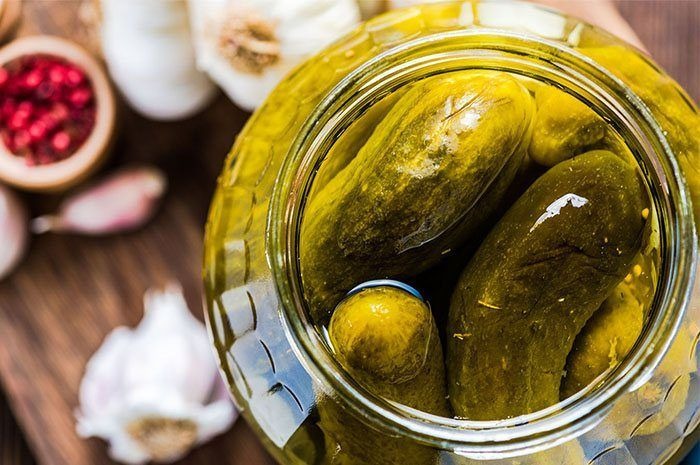This Hipster Food Trend Might Seriously Spike Your Blood Pressure
As Americans grow more enamored with pickling, artisanal producers are throwing everything and anything — from carrots and cabbage to pig's feet and prunes — into a jar of brine. But did you know that these farmer's market staples are probably wreaking havoc on your blood pressure?
Pickling is a relatively simple process, which is why so many small producers are able to do it. Almost anything can be pickled as long as it's placed in an airtight jar and submerged in a brine of water, vinegar, sugar, salt, and seasonings. As the food sits in the brine, it soaks up all of that salt like a sponge. A standard, medium-sized cucumber pickle (around 3 inches long) from the grocery store delivers about 785 milligrams of sodium; that's more than a third of the maximum recommended daily allowance.
But is salt really that bad for you? The American Heart Association definitely thinks so. Although sodium is necessary for a properly functioning body, too much of it puts a burden on the heart and blood vessels, increasing the risk of heart disease and stroke. According to the American Heart Association, a safe level of sodium intake is between 1,500 – 2,400 milligrams a day, but Americans on average take in almost double the higher amount. Some studies argue that salt doesn't raise the blood pressure for people with good health, but there's overwhelming consensus that for individuals who have hypertension or pre-hypertension, increased salt intake does indeed make it spike.
Another problem with pickled foods like sauerkraut, pickled hot peppers, or traditional cucumber pickles is that they're rarely eaten on their own. A perfectly placed pickle provides just the right amount of acid to cut through a rich, meaty deli sandwich, but it can also raise the sodium content of a sandwich lunch to an unhealthy level.
